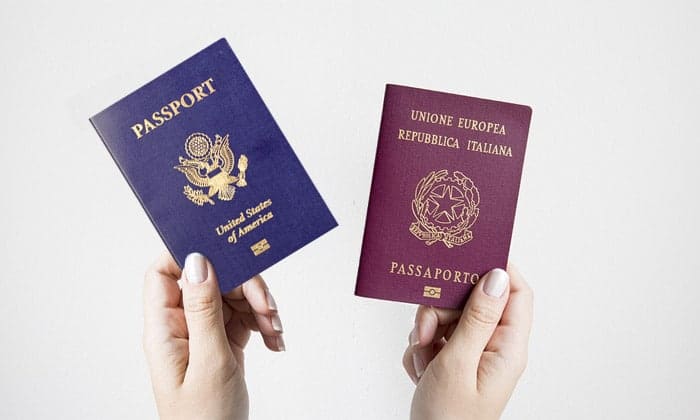Many couples go on the journey of adoption to form a family unit. As soon as the adoption has been processed, the family feels complete. Citizenship for adopted children is a way of solidifying the commitment that’s been made in the eyes of the world.
Citizenship is crucial for protecting the child’s present and future by determining a child’s rights (for healthcare and education) and expanding their long-term opportunities.
While the Child Citizenship Act (CCA) of 2000 in the United States is a widely recognized laws, similar laws and procedures exist around the world. Countries such as Canada, the United Kingdom, Australia, and EU member states also regulate how internationally adopted children acquire nationality and a passport.
This article explores how citizenship for adopted children works around the world, outlining requirements, benefits, and practical steps families must take to secure citizenship when adopting across borders.
- Understanding Citizenship for Adopted Children
- Citizenship by Adoption in the United States
- Citizenship for Adopted Children Around the World
- Benefits of Citizenship for Adopted Children
- Documentation and Proof of Citizenship
- The Application Process: A Global Overview
- Common Challenges Worldwide
- Frequently Asked Questions
Adoption and citizenship basics
Adoption establishes a permanent parent-child relationship under law (same as whether that child was blood-related to the mother and/or father).
Citizenship, on the other hand, is a separately determined process that depends on the receiving country’s immigration and nationality laws.
For example, a biological child born in the U.S. gains birthright citizenship, while a foreign-born child who enters on an immigrant visa after adoption must go through legal steps to obtain U.S. citizenship.
The role of immigration law
Every country’s immigration rules emphasize that an adopted child’s welfare must take precedence, and they should be protected from becoming stateless.
The Child Citizenship Act (CCA) of 2000
The Child Citizenship Act provides that adopted children can automatically acquire U.S. citizenship provided they meet the following requirements:
- At least one adoptive parent must be a U.S. citizen.
- Must be under the age of 18 on the date that conditions are met.
- Must be under the legal and physical custody of the citizen parent.
- Have a completed final adoption decree that is recognized by U.S. immigration services.
Automatic vs. derivative citizenship
If the above criteria are met, the adopted child does not need to apply for citizenship by naturalization and gain derivative citizenship. Parents can then apply for a certificate of citizenship and a U.S. passport to document this citizenship status.
This differs from automatic citizenship which is more associated with children born in the country or to citizen parents or so-called natural-born children.
Requirements for citizenship through adoption in the U.S.
The requirements applicable depend on the child’s entry visa:
- IR-3/IH-3 visas: For children adopted abroad, they may automatically acquire U.S. citizenship upon arrival, if the adoption is finalized.
- IR-4/IH-4 visas: For children entering to be adopted in the U.S., they must complete the process in a U.S. court. Only after the re-adoption and final adoption decree are completed will the child acquire U.S. citizenship.
If none of these apply, adoptees may later use the naturalization process once they hold a Green Card as a lawful permanent resident.
Canada
Canada allows parents to bypass permanent residency and apply directly for a grant of citizenship for a foreign-born child. The child does not need a permanent resident card first, but the parents must submit adoption records and a certified copy of the final adoption decree.
United Kingdom
In the U.K., an adopted child automatically becomes a British citizen if at least one citizen parent is British and the adoption is recognized under the Nationality Act or the Hague Convention. In other cases, parents must apply for the child to obtain citizenship through registration.
Australia
In Australia, adoption under Hague procedures allows children to acquire citizenship once recognized by Australian law. Where the adoption is not finalized abroad, parents must complete a re-adoption and then apply to obtain Australian citizenship for the child.
European Union member states
European Union (EU) countries vary widely. Some examples include:
- Spain: Children adopted by Spanish citizens automatically acquire citizenship.
- France: Recognition of a foreign adoption may grant nationality if one adoptive parent is French.
- Germany: Most adoptees must apply for naturalization after living as permanent residents.
Other global examples
- India: While largely a sending country, Indian law recognizes adoptions by foreign nationals but does not automatically revoke the child’s Indian nationality unless renounced.
- South Korea: Similar to India, adoptees may retain their original nationality, leading to cases of dual citizenship.
- Ethiopia: Adoption laws have become more restrictive, but previously adopted children could often retain Ethiopian nationality alongside their new citizenship.
The benefits of getting legal citizenship for your adopted children include:
- Legal equality so they’re on the “same level” as a biological child and truly feel a part of the family.
- Protection from deportation as opposed to a lawful permanent resident on a Green Card.
- Eligibility to apply for a passport, which serves as official proof of identity.
- Access to education, healthcare, and public benefits.
- Ability to inherit property, vote (when of age), and sponsor family.
Certificate of citizenship for adopted children
A certificate of citizenship is the strongest evidence that a child obtained nationality. In the U.S., parents file Form N-600 with immigration services to secure this certificate.
U.S. passport and other proofs
A passport can also confirm status and is often easier to obtain. Parents should submit the final adoption decree, birth records, and a certified copy of immigration documents.
Other supporting documents
- Foreign birth certificate.
- Immigrant visa and entry records.
- Court orders or re-adoption documents (if relevant).
If the child does not automatically acquire citizenship, pursue the naturalization process after becoming a lawful permanent resident with a Green Card.
- Foreign adoption not being recognized under national law.
- Lawful permanent resident status being confused with citizenship.
- Failing to complete a re-adoption when required.
- Missing the cut-off age, which is usually 18 years, for automatic rights.
- Difficulty obtaining documents such as a certified copy of the final adoption decree from the foreign country.
Global Citizen Solutions is a boutique migration consultancy firm with years of experience delivering bespoke residence and citizenship by investment solutions for international families. With offices worldwide and an experienced, hands-on team, we have helped hundreds of clients worldwide acquire citizenship, residence visas, or homes while diversifying their portfolios with robust investments.
We guide you from start to finish, taking you beyond your citizenship or residency by investment application.



